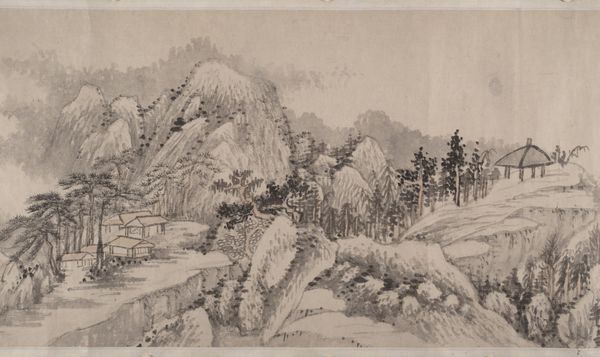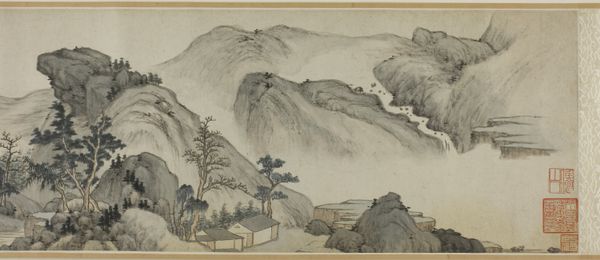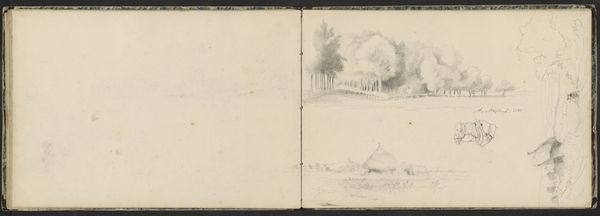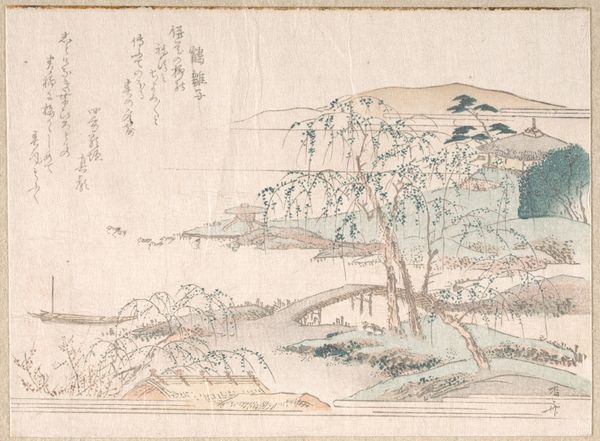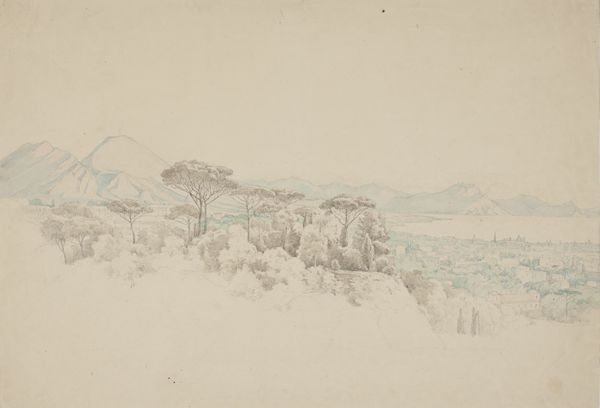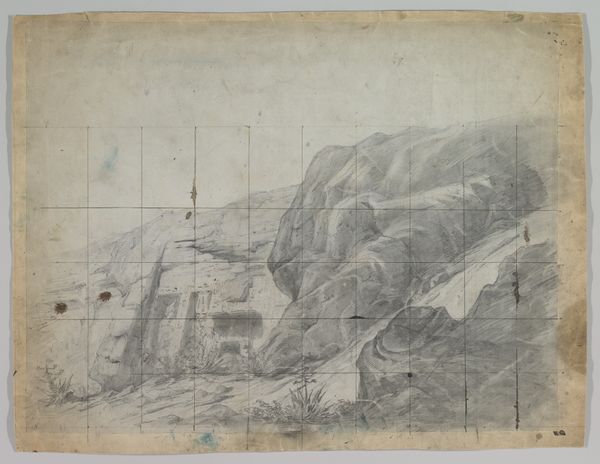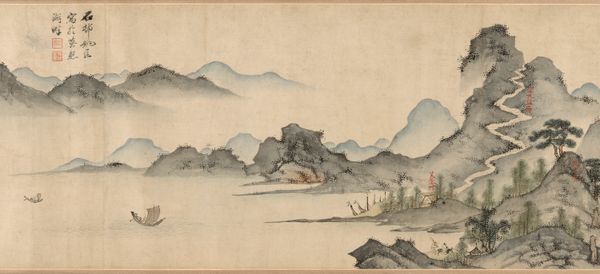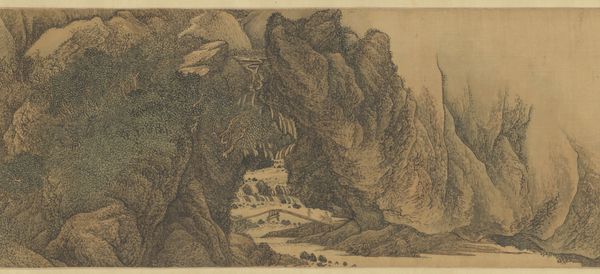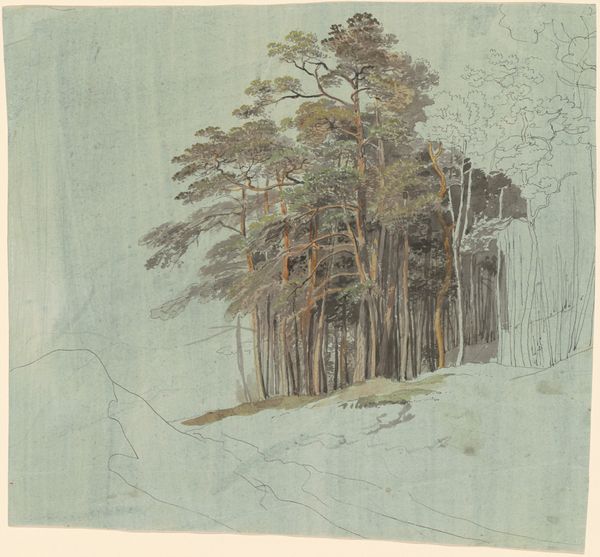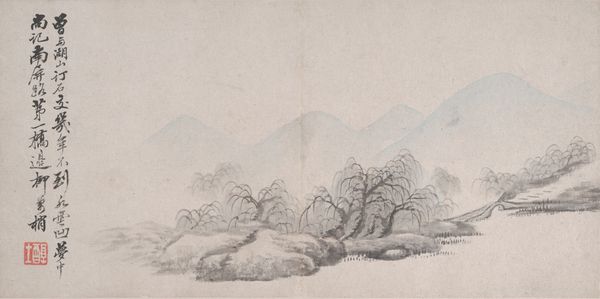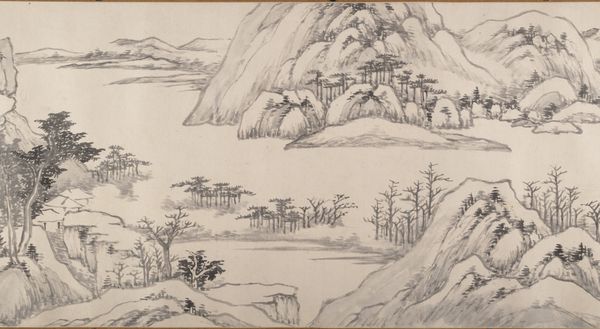
drawing, print
#
tree
#
drawing
#
toned paper
#
water colours
#
ink painting
# print
#
possibly oil pastel
#
handmade artwork painting
#
coloured pencil
#
underpainting
#
watercolour bleed
#
watercolour illustration
#
watercolor
Copyright: Public Domain
Editor: This is Eugène Cicéri’s “Design for a Stage Set,” created sometime between 1830 and 1890, using watercolor, print, and other media. I find the depiction of the landscape, though beautiful, almost unsettling because it’s so clearly artificial. What can you tell me about this work? Curator: That sense of artifice is key. Stage sets were powerful tools for shaping public imagination, reinforcing certain ideals about nature and the places "beyond" the city, often places not accessible to all. Consider how the Romantic era, with its focus on sublime landscapes, coexisted with colonialism. Editor: So the staged landscape perhaps glossed over the realities of those distant lands? Curator: Exactly. And, think about who gets to *experience* that vision of nature, both within the play, but more importantly the audience itself. Access to theater was often dictated by class. Editor: That's interesting. How does knowing the work's intention impact the message for us today? Curator: By acknowledging the social and historical context, we can better interrogate its power and underlying assumptions. We should question: whose stories are being told through these idealized landscapes, and whose are being excluded? The choices regarding these designs communicated to audiences more than just plot, or the mood, but ideology as well. Editor: This makes me reconsider the relationship between stagecraft, audience, and cultural values, in ways I hadn't anticipated before. Curator: Indeed! And by analyzing even seemingly benign artwork, we can reveal the complex dynamics that shaped social perception, which has enduring power.
Comments
No comments
Be the first to comment and join the conversation on the ultimate creative platform.
